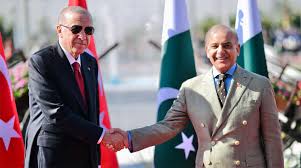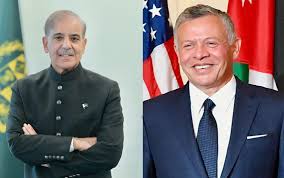Greece to bring in Egyptian farm workers amid labor shortage

Athens: Greece will start bringing in workers from Egypt this summer to take on temporary farming jobs under a deal between the countries to tackle a labor shortage.
Faced with a growing labor shortage, Greece will start bringing in workers from Egypt this summer to take on temporary farming jobs under a deal between the countries last year. The transnational agreement was ratified by the Greek Parliament in November 2024 and currently covers 5,000 seasonal farm workers.
The agreement was signed by Greek Deputy Foreign Minister Miltiadis Varvitsiotis who emphasized its significance in meeting the needs of the agricultural sector and limiting irregular immigration.
The countries have discussed expanding the “mutually beneficial” scheme to the Greek construction and tourism sectors, the Greek Migration Ministry said in a statement.
After struggling for the past decade, the Greek economy has been forecast to grow nearly 3% this year, far outpacing the euro zone average of 0.8%.
However, an exodus of workers during Greece’s economic crisis, a shrinking population and strict migration rules have left the country struggling to find workers to fill the tens of thousands of vacant jobs in farming, tourism, construction and other sectors.
The Greek paper Kathimerini reported that during a visit by Greek Migration Minister Dimitris Kairidis to Egypt on Friday, the Egyptian government provided him with an initial list of 2,400 Egyptian nationals who will come to the country for work. Under the current agreement, the workers will come to Greece until the end of the year, mainly to work in the agricultural sector.
Kathimerini reported that the Egyptian workers have been selected to come to Greece via a new residence permit which will be valid for nine months and will be linked to the employment of the workers. The new scheme has been in force since the beginning of 2024 and seeks to bridge the gaps in the Greek labor market.
A spokesperson at the Migration Ministry told Kathimerini that a new online platform, which provides a database of migrant workers and their respective skills, will allow potential employers to select the workers they need. The Greek Consulate will then handle the process. The 2,400 applications will start being processed this summer, according to the ministry.
During his visit to Egypt, Kairidis raised the issue of human trafficking and stressed the need for closer cooperation to jointly prevent irregular flows from the central Mediterranean corridor. He also noted the need to intensify the return of rejected Egyptian asylum seekers to their country of origin.
Egyptian officials also noted that their country deserves recognition for largely stopping migrants setting off from its northern coast across the Mediterranean to Europe since 2016.
In March, the European Union announced a “strategic partnership” with Egypt and a 7.4 billion euro deal to stem migrant flows to Europe from North Africa. With a population of 106 million people and limited foreign investment, economic hardship has pushed more and more Egyptians to find better opportunities abroad.
Rights groups have also criticized the EU for working closely with Egyptian President Abdel Fattah al-Sisi. The 69-year-old former army chief was sworn in for a third term last month after a decade in power, following the overthrow of Egypt’s first democratically elected leader.
Amid a crackdown on dissidents from across the political spectrum, the state and the army have extended their grip on the economy, which according to businesspeople and analysts has prevented the structural reforms required by the IMF. However, Sisi’s supporters claim that security measures were necessary to pave the way for providing social rights such as housing and jobs by providing more stability.
The risk of instability in Egypt has been an ongoing concern for European governments with many people struggling to get by while inflation is close to reaching a record high. However financial pressures are set to ease this year, following Emirati investment and an expansion of Egypt’s program with the IMF.





